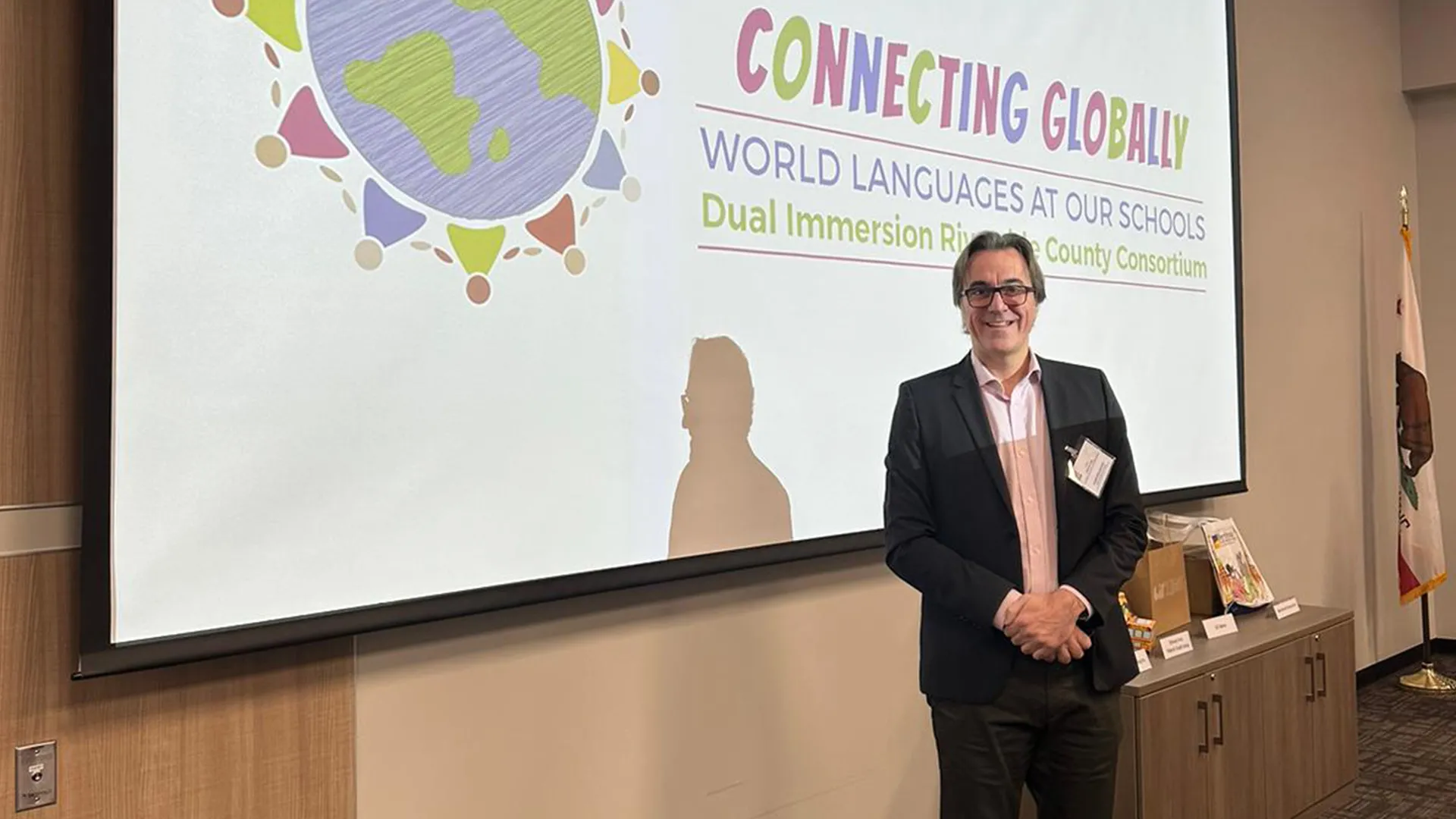Alan Llavore | Office of Strategic Communication | (909) 537-5007 | allavore@csusb.edu

In a professional development workshop before 90 educators, Jordi Solsona-Puig, a Cal State San Bernardino assistant professor of education, advocated for dual language immersion (DLI) programs, focusing on essential strategies for educators to enhance their understanding of Participatory Action Research (PAR) methodologies and transitional practices in DLI programs.
Solsona-Puig shared his keynote presentation, “Elementary to Secondary Quality Programs: Transitions in DLI,” with pre-kindergarten-12th grade educators during the Dual Language Immersion Consortium hosted by the Riverside County Office of Education late last year. The in-person event for dual immersion educators in Riverside and San Bernardino counties provided them the opportunity to gather and connect globally through languages.
CSUSB will host its own event promoting DLI on Friday and Saturday, March 8-9. The James R. Watson and Judy Rodriguez Watson College of Education will be the site of the second Dual Immersion Symposium, “Equity in Translanguaging.” The two-day gathering of educators will offer a unique opportunity to explore the power of multilingualism and multiculturalism.
Workshops in English and Spanish will be conducted by leading experts in the DLI field and will also include hands-on activities.
Register at the 2nd Dual Language Symposium webpage.
At the RCOE event, Solsona-Puig presented a workshop aimed at providing educators with hands-on, reality-based tools to address challenges associated with the PAR methodology applied to transition practices from elementary to secondary DLI programs.
PAR is theoretical research designed by PAR practitioners who collect relevant and available data to understand a situation being studied. Based on the evidence they collect, practitioners take actions that only lead to positive results. One of the important aspects of PAR is the last stage of reflection; the team makes reflections based on their personal experiences and also uses it as data.
The workshop’s highlights were:
- Exploring PAR: The objective was to gain a comprehensive understanding of the methodology as an innovative approach to research and professional development in educational settings.
- Address Transitional Challenges: Participants explored strategies to ensure a smooth transition from elementary to secondary DLI programs, including designing activities and frameworks for enhanced transitions.
- Fostering Collaboration: The workshop emphasized the importance of building partnerships among educators, administrators and stakeholders to enhance program quality and continuity.
- Reflect and Adapt: Participants were encouraged to utilize PAR to reflect on teaching practices and adapt them to meet the evolving needs of DLI students, facilitating continuous improvement and innovation in DLI instruction.
The event consisted of additional workshops and break out rooms, where three other workshops aimed for participants to be introduced to a concrete action plan to implement DLI methodologies and good practices, contributing to the overall success and sustainability of quality Dual Language Immersion programs.